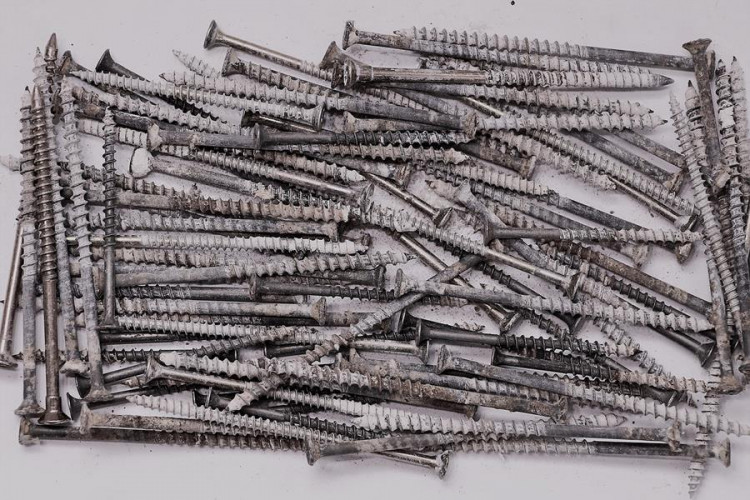A Lithuanian man who quit drinking alcohol started swallowing screws and nails after becoming addicted to them. Doctors extracted more than a kilo of metallic objects from his stomach.
Various reports mentioned the unidentified patient complaining of severe abdominal pain and being transported to a hospital by ambulance.
A three-hour operation removed all metal objects from the man's stomach, including the tiniest parts, according to Sanunas Dailedenas, a surgeon quoted by The Guardian as saying.
After quitting booze, his doctors say he swallowed metal objects for a month.
During the intense, three-hour procedure on the "man of steel," Dailidenas described the case as "unique".
An entire surgical tray of foreign bodies filled with four-inch long metal objects damaged the front wall of the man's stomach, Dailidenas explained.
The hospital provided journalists with a photograph of a surgical tray filled with screws and nails.
"We have never seen anything like it," Algirdas Slepavicius, head surgeon at the Klaipeda Hospital, said.
By regularly scanning the stomach of the patients using high-tech X-ray machines, doctors had to ensure that the sharp metals had been removed.
But the medics indicated that foreign objects in a stomach are not exactly a rare occurrence for them.
A few of the more unusual objects swallowed by patients include pennies, sewing needles, and spoons.
"Man of Steel" is not the only person who has swallowed something strange -- one man lost his voice as his throat rotted after swallowing a bleach tablet believing it was pain medication.
Serial swallowers, children are also prone to swallowing small magnets; dozens have required life-saving surgery after swallowing small parts of these objects.
There were more than 65,000 calls about non-edible objects swallowed by children in 2016, according to U.S. poison control centers. Coins, toys, jewelry, and batteries are among the most commonly swallowed items by kids.
Children who swallow magnets may suffer significant damage to their intestines or bowels when they fuse with their intestines and squeeze the blood supply, health officials warn.
Doctors said "man of steel" -- who cannot be identified for patient confidentiality reasons -- is in a stable condition following the operation.






